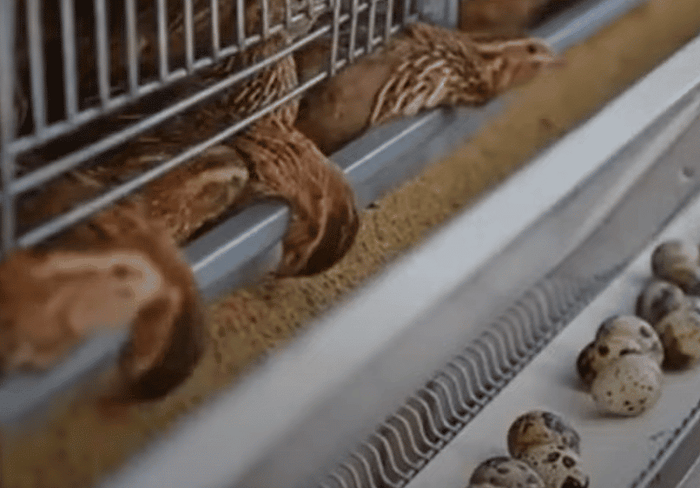Quail is a dual purpose poultry bird whose meat and eggs are very nutritious than other poultry birds. To meet the demand for food and nutrition, quail farming is playing a vital role.
Quails generally survive for 3-4 years. An adult quail weighs between 150-200 g. Female quails start laying eggs from their 6-7 weeks of age and lay over 300 eggs per year. An egg weighs between 7-15 g. Presence of light increases the egg production of quails. Quails lay eggs in the afternoon and they take about 17 days to hatch their eggs. Their eggs are never incubated. Keep one male with every 5 females for successful breeding. Eggs of 9-11 g with smooth & hard shell are perfect for hatching.
Egg production
Sufficient light is highly recommended for desired egg production for your quails. Select highly productive breeds and keep their house dry and clean. Egg production also depends on temperature, feeding, water, care, management, proper air movement and density of quail chicks.
You can hatch quail eggs through chicken or artificially by using incubators which takes about 16-18 days. Chicks need artificial heat & temperature management system for 14-21 days from their birth.
Advantages
Quails meat and eggs are very tasty and nutritious so they have an already established market. Since quail birds and eggs are small in size, they are cheap in price, easy to handle and can be raised within a small space. The feeding cost is lower compared to chickens and other poultry birds.
Diseases are less in quails. Quails grow and reach maturity fast. Their meat and eggs are nutritious and also they need low capital and labour cost.
Housing
Quail can be raised in both litter and cage systems but cage systems are more suitable. Use 5 by 5 mm net for making adult quail cages. Plastic cages are most convenient for quail farming business.
Provide quails with balanced feed regularly to keep them healthy and productive. Quails are not provided with any disease preventive vaccines. Quails tolerate changes in weather and temperature.



















